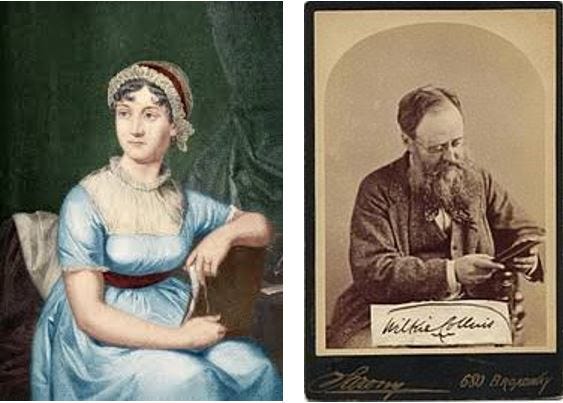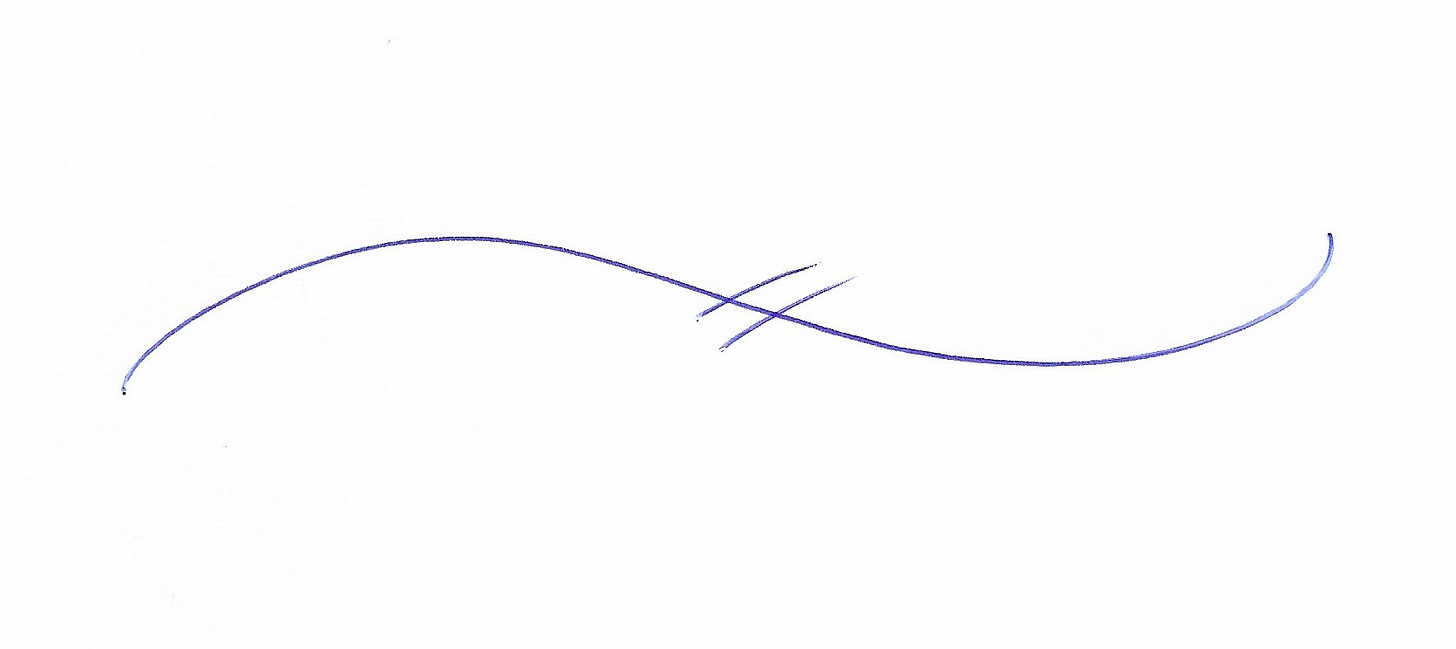[Child #1 created a great new logo for Fundraising for Breakfast we’re taking for a spin. It’s a family affair around here. We hope you like it!]
Ten years ago, I was in the final interview stage for a faculty position at a small, liberal arts university. I didn’t get the job (barf), but I remember an exchange I had with one of their students when I visited campus:
Student: Hi. So, who are your two favorite authors?
Me: Hey. Probably Jane Austen and Wilkie Collins. Who are yo…
Student (interrupting): Shoot one of them.
Me: Pardon me?
Student (dead-eyed): Austen or Collins. Who do you shoot?
Me: Uhhh…weird. Geez. I dunno. Can I just wing one of ‘em?
Student: No. Shoot to kill. Obviously.
Me: Hmmm…well, definitely Wilkie Collins. But only after 1868. He doesn’t write anything worth reading after 1868.
Student (slightly less dead-eyed, smiling): Well played.
Weird joke. Bizarre moment. But an instructive one, I think.

Last week I suggested that English majors could consider a career in fundraising, and now I want to touch on what I hope happens when I’m interviewing them for a job.
In an interview, I’m alert to a particular moment that (I think) this student tried to create with me ten years ago:
Getting me off script, out of my head, in the moment, and having an actual conversation.
You know, like fundraisers are supposed to do.
My feelings about my pre-fundraising academic career are complex, but I’d say interviewing for faculty positions sharpened my perspective about the encounters that happen during interviews. Those lucky enough to get a first-round interview for an academic job in English had to travel to a conference right after Christmas, sit for a 45-minute interview in a hotel suite with a panel of professors, and pray to God things didn’t get weird, awkward, and/or uncomfortable while you’re (sometimes) sitting on the bed in a complete stranger’s hotel room, pretending like it’s a perfectly normal way to interview for a job.
Something clicked for me through this miserable interview process: meeting new people on the fly; making quick connections; talking about my research and teaching in short, memorable bursts. Unbelievably stressful at the time…but some early fundraising muscles came alive during these moments.
I’ve talked before about why I think fundraising is best when it’s a little messy, and I feel the same about interviewing. I’m not bothered by too many “umms” and “ahhs” and I understand that a rambling response comes from nervousness. But I’m eager to see how applicants work during an interview to make a connection with me and other interviewers.
A fundraising job interview, to me, simulates the encounters that happen between fundraisers and donors, and I want to see how the candidate expresses curiosity, fosters discussion, participates in the tone, and begins to build trust and rapport.
But is this too much to ask for, Substack? I’m constantly going back and forth with myself.
Am I’m expecting too much or—alternatively—am I asking for too little from an interview?
Is it too much to expect a candidate to come in cold, connect with me (a stranger), and get me to think beyond the resume and cover letter in front of me?
Is it not enough when evaluating a candidate to simply privilege soft skills at the expense of hard details about background and career experience?
Here’s what, I think, a good interview for a fundraiser looks like:
Conversation that goes beyond what’s in the job description and what’s on the candidate’s resume.
The applicant participates actively in shaping the tone and tenor of the meeting.
They exhibit the kind of body language, eye contact, and demeanor that communicates they actually want to be talking to me.
This is what we do when meeting with donors, volunteers, and other partners. Shouldn’t it be part of how we assess budding fundraisers?

Even if you’re not a fundraiser, you must have experienced similar issues as an interviewee or an interviewer.
How do you get interviewers and applicants to stop being robots and have an actual human interaction so you can make hiring decisions?
Somebody coach me on this.
HR professionals generally frown upon asking applicants which figure from nineteenth-century British literary history they’d gun down in cold blood.
But ten years ago, a kooky student got me to do something that doesn’t happen very often during interviews: she got me off my script and interacting with her in the moment. She saw a little of what I was like during office hours, or while waiting in line for coffee, or in the classroom.
My only regret—and I’ll be upset about this until the day I die, you guys—is that I never asked her my follow-up question:
So tell me…which one of your favorite authors do you think will eventually kill you?
Come at me, kid!
How’s that for starting a conversation in a job interview!










I have a million interview stories, because between your dad and me we interviewed for a million jobs or were the interviewer. I was once asked at an interview for an executive assistant position the most recent business book I had read and what I had learned from it. In truth, the answer was “are you kidding me? I read Nora Robert’s and Kristen Hannah.” However, I had just read “Leadership” by Rudy Giuliani and managed to cobble a response. Boy, that didn’t age well. My husband once did a phone interview with a recent university of Michigan grad,who said he couldn’t possibly work in Lansing, the home of Michigan State. Mike said “ok” and hung up.
I think the robotic HR thing stems from a couple of issues:
1) most of the interviewers are not the ones who will actually work with the person
2) in virtual cases, it may actually be a bot and not a real human…
I also am not sure I would call sales appointments “interviews” in that interviews are taking a need and filling it. Interviewers need the fill a position that the interviewee wants.
In sales/fundraising/asking for donations, there is not a need on both ends; instead, only 1 person feels the need to make a connection, while the other may likely feel put out. (Maybe that’s the key to successful fundraising: creating a “need” for the donor).